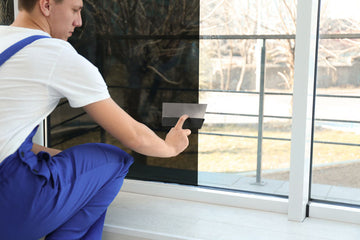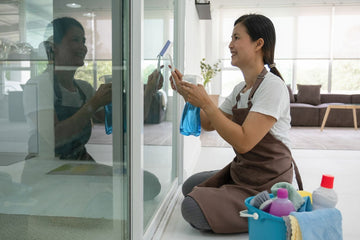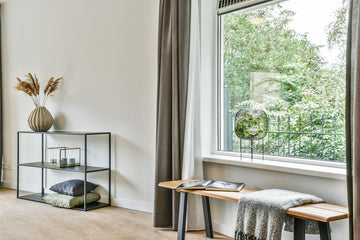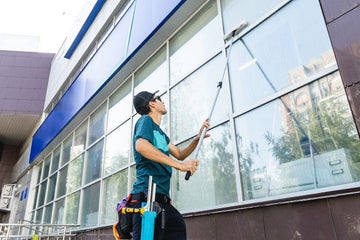Disadvantages Of Home Window Tinting
When many homeowners think about home improvements, they consider window tinting as a way to add privacy, reduce energy costs, and protect their homes from the sun's UV rays. However, as with any investment, it's essential to understand not just the benefits but also the potential drawbacks. In this guide, we will delve deep into the disadvantages of home window tinting, enabling you to make an informed decision.
Appearance and Visibility
The following are the disadvantages of window tinting:
- Potential darkening of rooms
- Compromised nighttime visibility
Learn more About Preventing health issues by cleaning your windows regularly.
Potential Darkening of Rooms
Some window tints can make rooms considerably darker. This can defeat the purpose of those who want to maintain the brightness of their rooms while blocking UV rays. It can also impact the look and feel of the house, both from the inside and outside.

Compromised Nighttime Visibility
At night, the tint can reflect the inside lights, making it challenging to see outside. For some people, this reduction in nighttime visibility can be a significant disadvantage, especially in areas where nighttime views are a highlight.
Maintenance and Durability
Following are the ways to maintain window tinting while keeping the windows clean:
- Removal and Replacement
- Cleaning constraints
Removal and Replacement
Over time, window tints can become scratched, faded, or peeled. Removal and replacement can be both time-consuming and costly. While some window films come with a warranty, others might not, leading to more out-of-pocket expenses.
Cleaning Constraints
Post tinting, homeowners might find restrictions on the types of cleaning products, such as Bring It On Cleaner they can use. Some cleaning materials can damage the film, requiring more careful maintenance.

Cost and Installation
Drawbacks of window-tinting.
Initial Investment Can Be High
One of the significant disadvantages of home window tinting is the cost. Quality window films can require a considerable initial investment. While they might save money in the long run by reducing energy bills, the upfront cost can deter many homeowners.
Professional Installation Required
Getting the window tint installed correctly often requires professional help. Doing it yourself can result in bubbles or peeling, negating many of the advantages you hoped to gain. And professional installation can add to the overall cost.
Misconceptions About Protection
The common misconceptions are as follows:
Not All Tints Offer Complete UV Protection
While many homeowners assume that any window tint will offer full UV protection, this isn't always the case. It's essential to understand the type of UV protection the tint provides, as not all films are created equal.

Security Overestimations
While tints can provide an additional layer of security, they aren't foolproof. Tinted windows might deter break-ins but won't entirely prevent them. Overestimating the security benefits can lead to complacency.
Conclusion: Balancing Pros and Cons
Home window tinting can undoubtedly provide numerous benefits, from energy savings to UV protection. However, understanding the potential disadvantages allows homeowners to make an informed decision. By considering the cost, appearance implications, durability, and true levels of protection, you can decide if window tinting is the right option for your home. Always remember to weigh these drawbacks against the potential advantages to determine the best way forward for your space.
Frequently Asked Questions
Can I install window tints on top of existing ones?
Layering tints is possible, but it may reduce clarity and light penetration. It's often recommended to remove old tints before a new installation.
Do all window tints have a reflective appearance?
No, tints come in various shades and finishes, from reflective to matte, allowing homeowners to choose based on preference.
Can window tints interfere with cellular or Wi-Fi signals?
Some metallic window films might interfere with signals. Non-metallic or ceramic tints are less likely to cause disruptions.
Here is my go to product for cleaning windows
Affiliate Program
If you love our brand, Earn 20% commission on our affiliate program. Any sale you bring through social get 20%. Reach out to bringitoncleaner07@gmail.com




